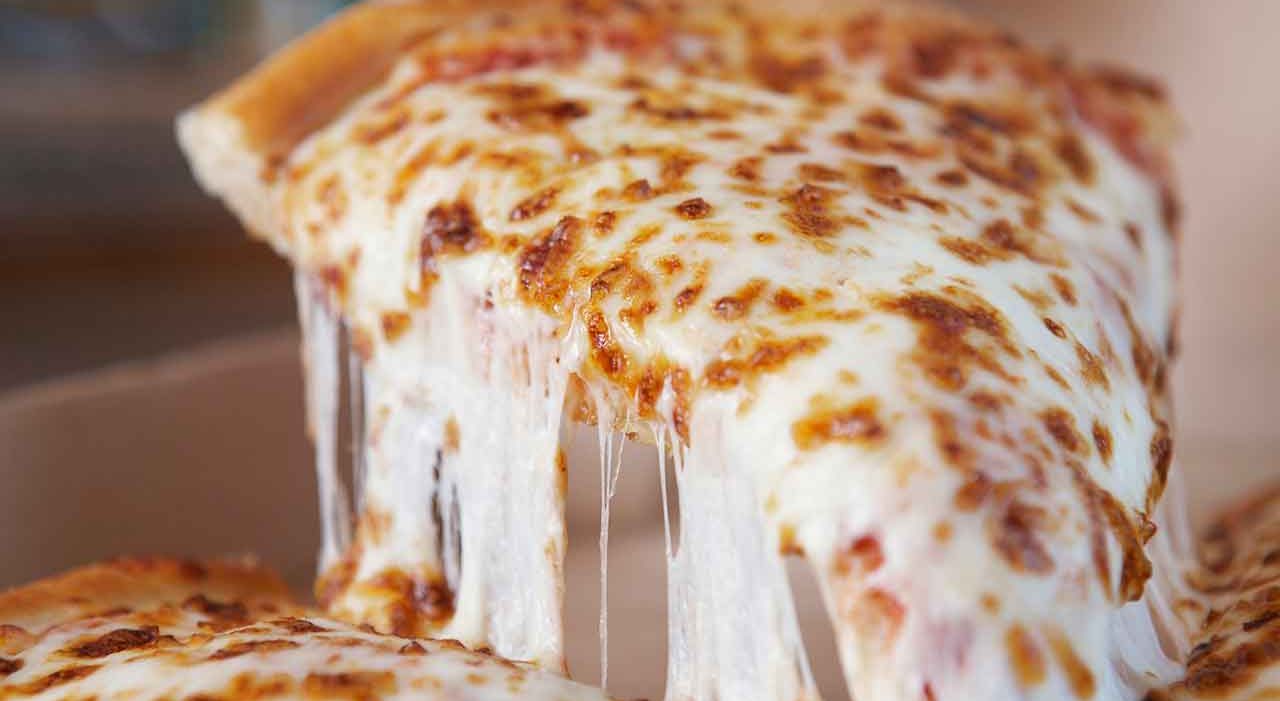Is Cheese Addictive? Am I Addicted to Cheese?

That’s not entirely a joke. Some foods work on your body like addictive drugs. There’s a reason you eat too much pizza. Cheese really can be addictive.
It’s hard to stop eating after just one potato chip or pizza slice; no one doubts that. Science explains why.
In one study, when researchers led by Ashley Gearhardt, PhD, a clinical psychologist at the University of Michigan, asked 500 people to report on how they consumed each of 35 foods, pizza turned out to be the most addictive.
YOU MIGHT ALSO LIKE: Why Don’t Americans Eat More Fruits and Vegetables?
Is cheese addictive?
Pizza packs a double whammy. The crust is made of refined white flour that turns quickly into glucose in your bloodstream. The cheese contains casein, a protein that releases “casomorphins” during digestion, a kind of opiate.
What makes cheese addictive?
First, consider the crust. Chewing a leaf of the coca plant isn’t likely to turn you into an addict. Cocaine has been engineered so that the most addictive substance in the plant moves quickly through your bloodstream. In the same way, addictive foods funnel glucose in refined carbohydrates quickly into your bloodstream.
After all, the food industry’s goal is to make you eat, and buy, more of their products, not to make you content with a small portion. Fat helps the process along. This is why people love products that combine flour and fat, like cookies, cakes, and pizza.
Now add the casomorphin-producing cheese. “Casomorphins attach to the brain’s opiate receptors to cause a calming effect in much the same way heroin and morphine do," says Neal Barnard, MD, author of “Breaking the Food Seduction: The Hidden Reasons Behind Food Cravings — And 7 Steps to End Them Naturally.”
According to the National Institutes of Health Dairy guidelines, you should aim to eat no more than 1.5 ounces of cheese a day. Any more than a couple of slices of pizza would be over the limit. But especially if you’re anxious, you may crave more and more of that calming effect. Interestingly, in this study, men reported more problems with overeating cheese (and also steak) than women.
Brain imaging studies have backed up the idea that people who eat a great deal of junk food, for instance ice cream, can develop tolerance — just like you might with a drug. So, they need more of a given food to get its benefits.
A good deal of the evidence on the similarity between compulsive food and drug consumption comes from studies with rats. Rats are more likely to binge Oreo cookies or frosting than their typical chow. If you feed them cheesecake, their brains start to look like the brains of drug-addicted rats.
If you feed rats sugar and then take it away, they go into a state that looks like opiate withdrawal; their teeth chatter and they become aggressive.
Another sign of addiction: Even when researchers punish rats with shocks to their feet, the rats keep lunging toward highly processed foods. Think of the alcoholic who keeps drinking even after he loses his job and wife.
Pizza, chocolate, chips, cookies, ice cream, French fries, cheeseburgers, soda, and cake are the most addictive foods — followed by cheese, in 10th place.
Many vegetarians are secret cheese crackheads. If you decide to cut back on, or cut out, cheese, you may rediscover the wonderful flavors of broccoli and other vegetables that you used to hide under cheese. Try substituting avocado on sandwiches or in salad, and nuts or nut butters. Both contain healthy fats. You can also try vegan cheese made from soy or nuts.
It may take effort. In other research, Gearhardt’s team has concluded that cutting back on highly processed foods can trigger symptoms of withdrawal — irritability, fatigue, sadness, and cravings. Although you may know a food isn’t good for you, quitting is a struggle.
Gearhardt’s patients “have typically tried dozens of strategies like crash diets and cleanses to try and get their relationship with these foods under control,” she said. “While these attempts might work for a short time, they almost always end up relapsing.”
Cheese doesn’t, however, cause an altered mental state in the way that alcohol or cocaine do. It may be that you’ve developed patterns of overeating and can switch from one food to another, but you still end up feeling out of control.
What you can do
Don’t underestimate one of the common-sense methods of managing your eating: Remove temptation. Don’t keep cheese in your home. Avoid driving by a favorite pizza shop.
Another strategy is to create a ritual around eating, perhaps prayer or cutting up food on your plate before you eat.
Updated:
June 12, 2023
Reviewed By:
Janet O’Dell, RN